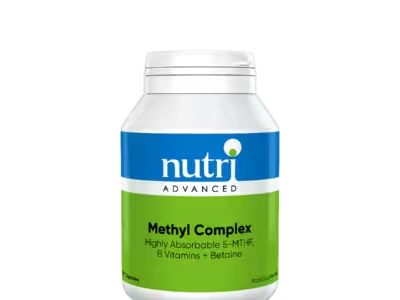Magnesium Glycinate Tablets
£20.80
In stock
Description
Why Choose Magnesium Glycinate?
Magnesium as glycinate is a superior, highly absorbable form of magnesium than other cheaper forms of magnesium. This enables our Magnesium Glycinate to deliver therapeutic amounts of magnesium effectively meaning you feel the benefits. Magnesium Glycinate is well tolerated especially by those with sensitive digestive systems meaning no upset stomachs sometimes experienced with other forms of magnesium. Each tablets provides 100mg magnesium so you can take as little or as much as you require.
Magnesium is a mineral that is essential to life, and is found in every cell type in every organism. It is needed for hundreds of reactions within the body. The data from the most recent NDNS (National Diet and Nutrition Survey) shows that many of us in the UK are not meeting the RNI (reference nutrient intake) for magnesium1, meaning our intake is insufficient. Unfortunately poor soil and processing methods can mean that even those eating a balance diet might not be getting as much magnesium as they need.
How Much Magnesium Is Recommended?
The RNI for magnesium is between 270mg and 300mg daily depending on whether you are male or female. Good food sources of magnesium include greens such as spinach, nuts such as almonds, and seeds. However many of us are not meeting the RNI for various reasons, including poor diet, pregnancy, illness or medications. 2-3 tablets of Magnesium Glycinate daily can help you achieve this recommendation, alongside a healthy balanced diet.
What Are The Benefits Of Magnesium?
Magnesium contributes to the:
– normal function of the nervous system and muscles
– energy-yielding metabolism
– reduction of tiredness and fatigue
– electrolyte balance
– normal protein synthesis
– the maintenance of normal bones and teeth.
How Does Magnesium Help Support Normal Sleep?
Magnesium is the relaxation mineral, helping to calm both mind and body before bed. It is involved in the production of calming neurotransmitters, helps to balance the effects of stress and anxiety and acts as a brain and muscle relaxant.
How Does Magnesium Help With Muscle Recovery?
Magnesium works closely with another mineral, calcium, and both these essential nutrients are involved in regulating muscle contractions. Calcium causes your muscles to contract while magnesium helps your muscles relax. If your body doesn’t have enough magnesium to compete with calcium, your muscles may contract too much, causing cramps and spasms.
Read more about Magnesium including research, benefits & symptoms of deficiency here.
Product Code: 5108
1. NatCen Social Research, MRC Elsie Widdowson Laboratory. (2019). National Diet and Nutrition Survey Years 1-9, 2008/09-2016/17. [data collection]. 15th Edition. UK Data Service. SN: 6533, http://doi.org/10.5255/UKDA-SN-6533-15
Suitability
1 review for Magnesium Glycinate Tablets
Only logged in customers who have purchased this product may leave a review.








NRGadmin –
see reviews on Nutri Advanced